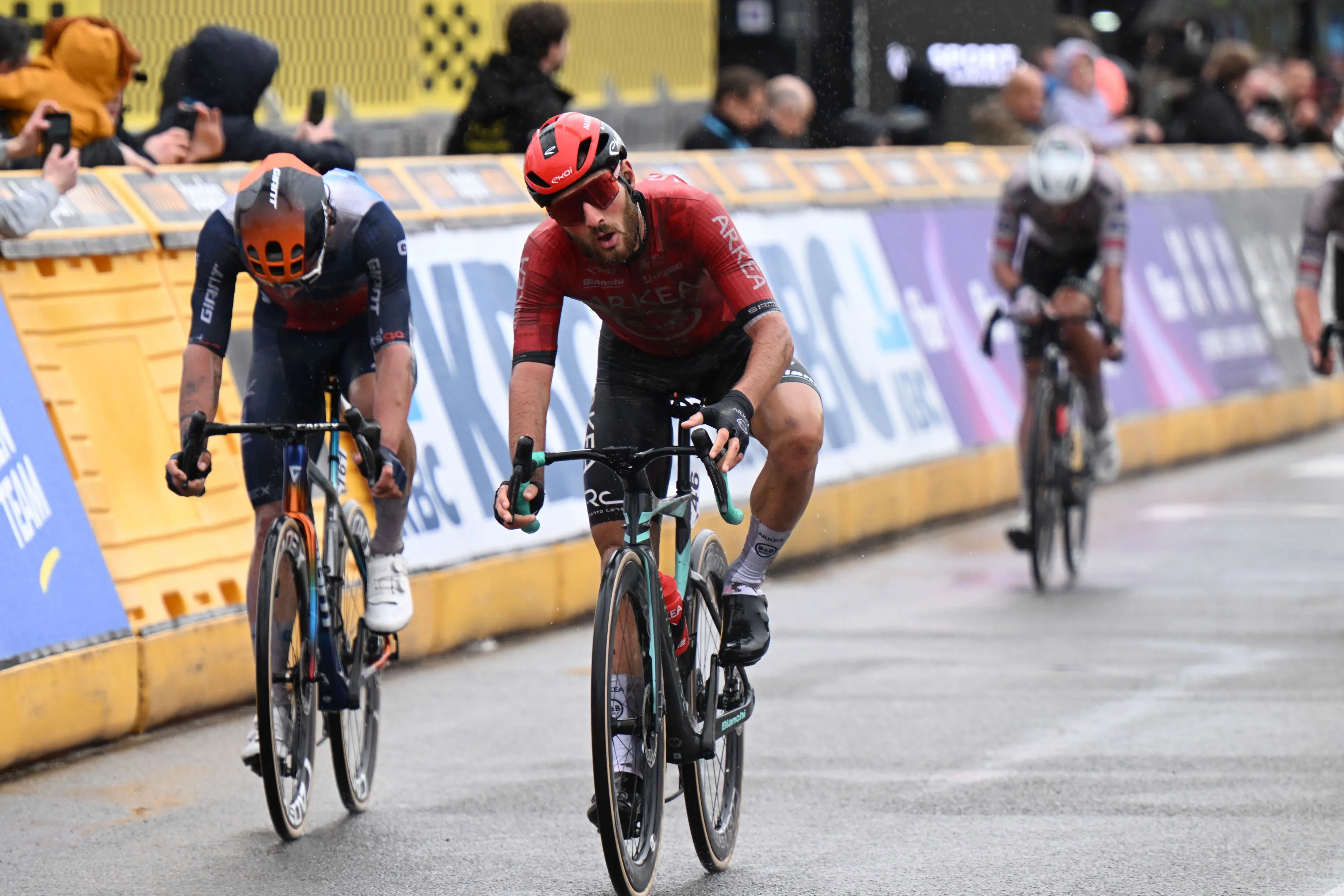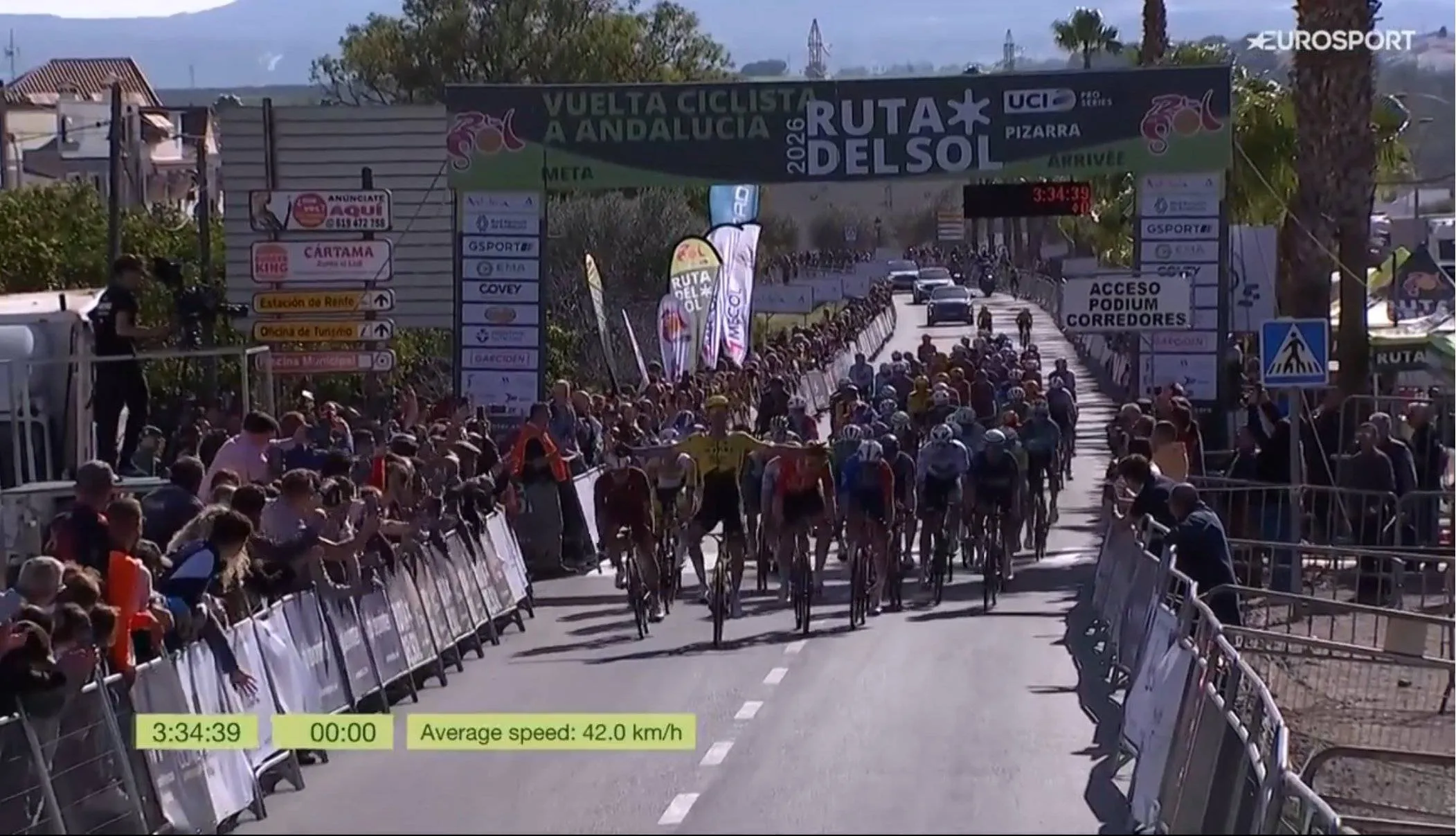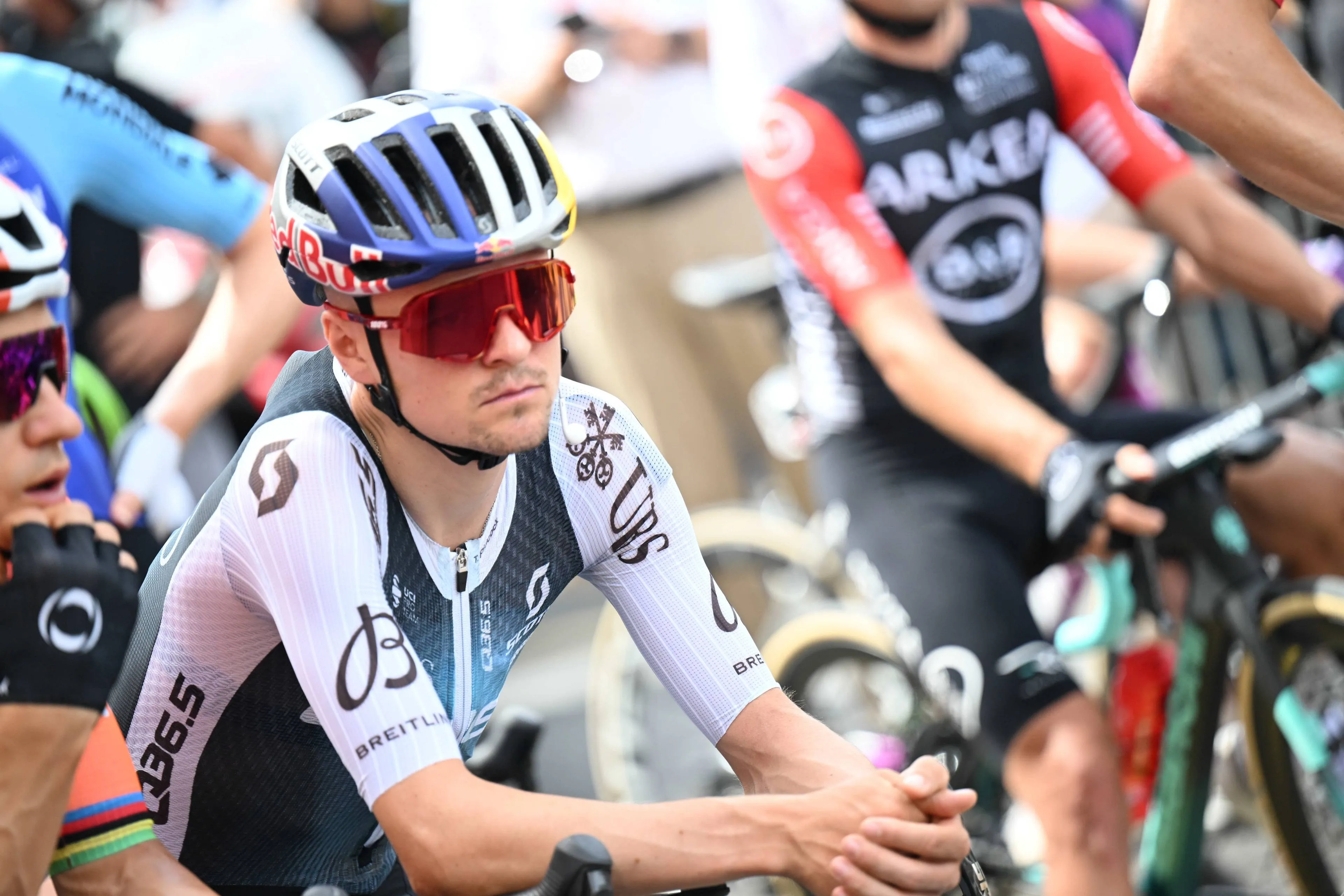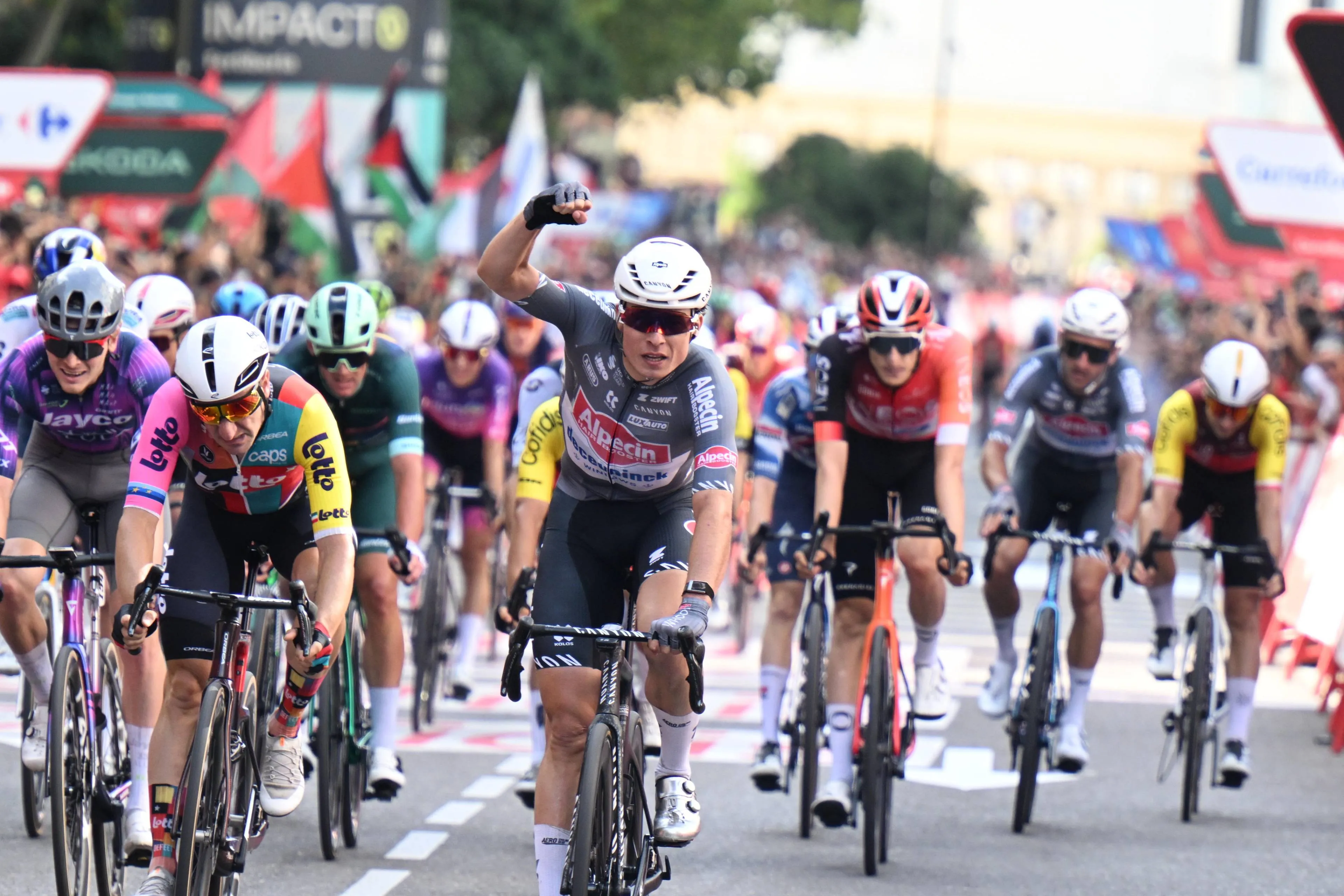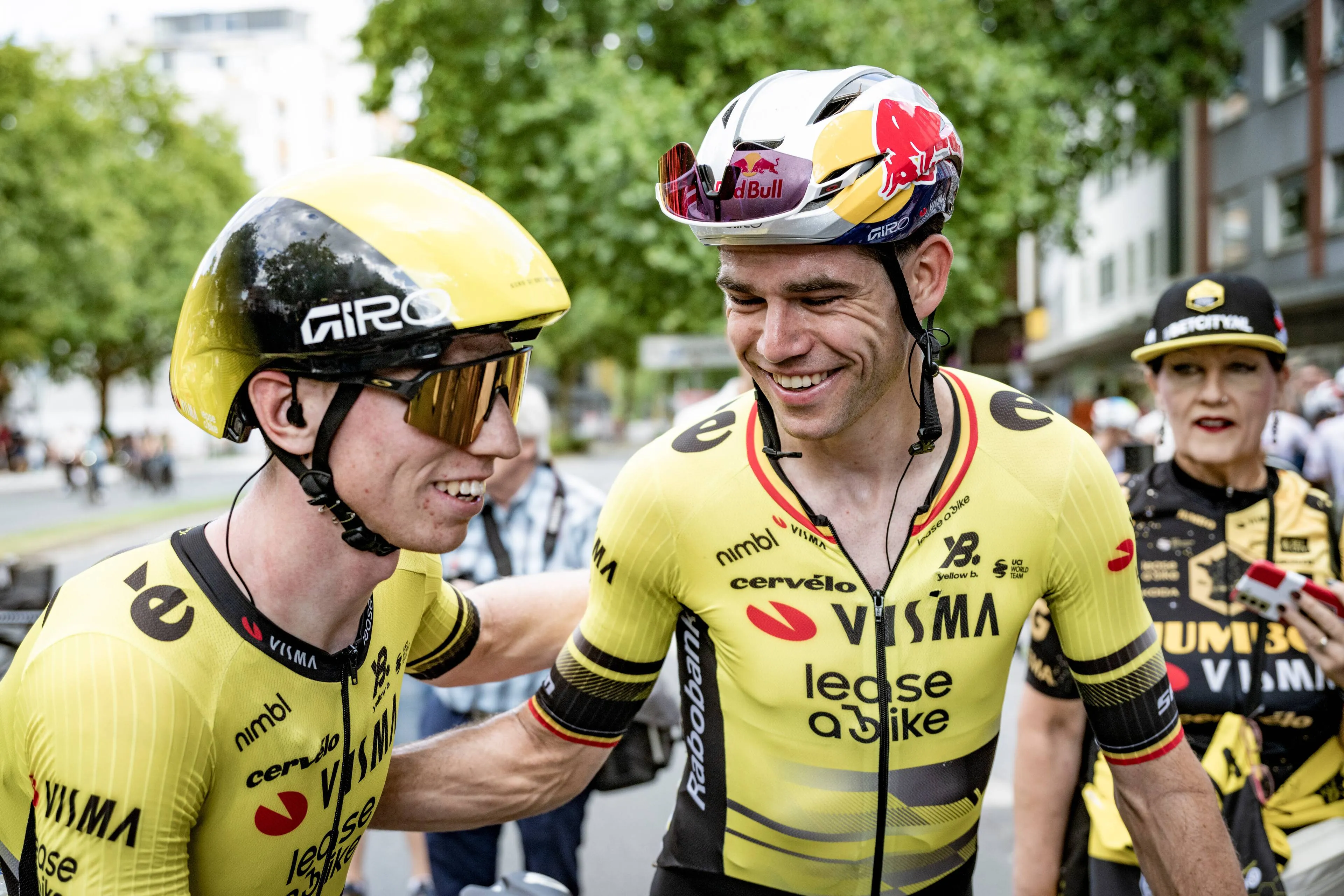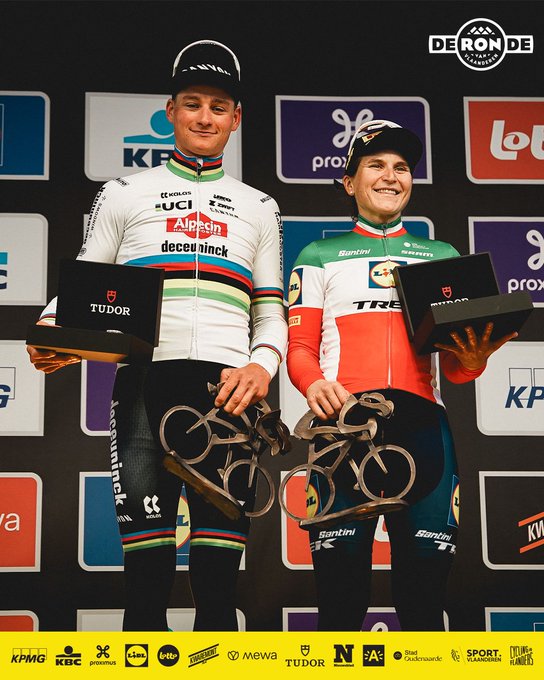Pedal Punditry #2 | Tour of Flanders: Why no-one could beat Mathieu van der Poel and the 3 big surprises
CyclingTuesday, 02 April 2024 at 10:27

Every year, the Tour of Flanders is one of the toughest and most spectacular races of the season. Whilst Mathieu van der Poel took the expected triumph, we take a look at why no-one was able to beat him; and also the 3 riders that surprised the most out of a peloton of survivors.
No-one matched Mathieu van der Poel - Was there anything that could be done?
The writing was on the wall. Mathieu van der Poel looked superb at the E3 Saxo Classic in the very same climbs where he'd have to perform in Flanders. E3 is the biggest warm-up race for the big one, and there only one rider matched him: Wout van Aert. The Visma rider was forced to watch the race from home, healing a fractured sternum, collarbone and three ribs. At Gent - Wevelgem van der Poel was beaten by Mads Pedersen; much due to Lidl-Trek's masterful tactics and somewhat easier profile. Pedersen also crashed at high speed in Dwars door Vlaanderen...
Although the Dane took to the start, his confidence had taken a hit, and he was clearly racing with less thought of victory and more thought on being ahead of the rest and thinking of his teammates. Hence he did attack several times. From 87 to 56 kilometers to go Pedersen was eating wind almost the entire time, and he was caught precisely in the penultimate ascent of the Oude Kwaremont, where the race truly kicked off. So van der Poel's two biggest rivals at the start of the week were virtually out of contention by the time the race entered it's decisive phase.
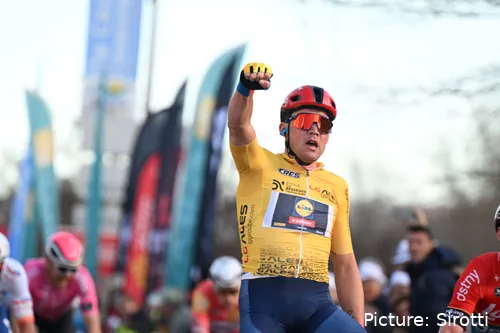
Team Visma | Lease a Bike also played their cards: Tiesj Benoot and Dylan van Baarle in early attacks, but van der Poel recognized the damage of the strong group that had formed with just under 100 kilometers to go. Alpecin-Deceuninck was already racing in defensive mode by then, but the smart World Champion knew he could not burn the team to close the attack, and he did so himself at the Valkenberg. Then, after the race settled down again, Alpecin got to work - even though they had Gianni Vermeersch racing together with Pedersen. Despite the modest collective against other teams, Alpecin still had surplus of men, as Vermeersch - who somersaulted over his bike when crashing at Dwars door Vlaanderen and impressively recovered in time - did not even have to do any work for van der Poel.
Read also
In the transition phase between the Valkenberg and the second Oude Kwaremont, the climbs were not as difficult, and it was early enough in the race for Alpecin to still have their men towards the front and set a high enough pace that other favourites would not want to change, so as to have legs for the final decisive 55 kilometers. When those arrived, van der Poel was clearly above the rest. The attacks were cancelled, at Oude Kwaremont he got a gap even though he wasn't going all-out, and then he just waited for the steepest climb in the race.
Van der Poel himself knew that the key was to control the race until the second Oude Kwaremont. “I knew once it started raining that the Koppenberg would be chaos. When all the other teams started attacking us, I asked my team to create a controllable situation until the Koppenberg," he said in the post-race press conference. "Because I knew from there I would be alone anyway." The plan was to attack in the Koppenberg where the race would certainly split apart, and it did..
But besides it's natural difficulty, this year the cobbles were wet in the Flandrien beast. Scenes that were only seen decades ago were again visible on the Koppenberg as even the biggest of favourites - except for three riders: van der Poel, Matteo Jorgenson and Mads Pedersen - had to step off the bike due to the conditions of the road and other riders losing contact with the road. The gaps were even bigger than what a traditional attack could do. From there on, despite the much suffering, endurance specialist van der Poel had the race in the bag and only had to stay on the bike so as to add a third title to his palmarès.
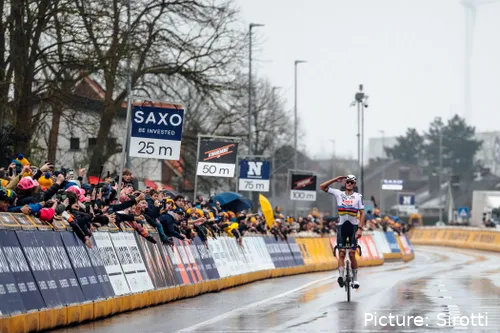
The 3 M's. Flanders' big surprises: Mozzato, Morgado and Malecki
However this edition of Flanders was one where the biggest plot was the riders that performed behind. With van der Poel's victory being widely predicted, and going down as expected, the most exciting fights ended up being behind. Alberto Bettiol and Dylan Teuns charged up the final kilometers in the lead of the race whilst other small groups were constantly in the chase. After the Paterberg, these were Michael Matthews, Oliver Naesen and Magnus Sheffield. Behind, a group containing four UAE Team Emirates riders, Tiesj Benoot who suffered a mechanical and was given a bike of a teammate (later justified, but nevertheless a hilarious moment), and a few more figures... Some of them expected, others not so much.
For me the true story of Flanders was that of António Morgado. That is not a surprise, taking into consideration how he is my compatriot and the first rider to perform in the cobbled classics at this level for years, decades... It was all in the legs too. Above all, the words the 20-year old has given over the past month were not positive. "I don't like these types of races," he said following his photo-finish second place at Le Samyn. "There's not a lot of respect between people, and I like races with a minimum of respect," he said on the eve of Flanders.
After Flanders he gave an interview with the Portuguese Cycling Magazine where he was not even smiling, despite having become the youngest rider in 55 years to finish in the Top10 of a monument in cycling - later, after the relegation of Michael Matthews, he was moved to fifth place, and did further history by becoming the youngest rider in almost a century to achieve that feat. Not only for Portugal, but the entire cycling world, Morgado did history, despite being perhaps the rider who most openly dislikes the cobbled classics. "Now I have that motivation. I'm starting to like these races," he said however in the press rooms of Oudenaarde.
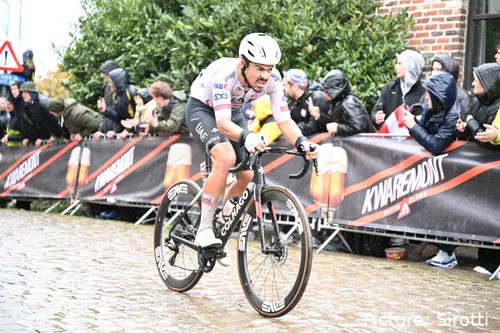
Read also
What impressed me the most was his endurance. For a rider who just turned 20 years old a few months ago, performing over 270 kilometers is a massive achievement. Doing so against some of the best classics riders in the world was very notable, but it's incredible how he did this. Throughout the race I kept a close eye on him as I had hopes of him performing. Every time he showed up on screen he was climbing in the back of the peloton, but in the climbs he overtook several riders and found himself in a better-positioned small group than the climb before.
Before we knew it, as everyone battled for a podium place as van der Poel had already escaped with the win, Morgado's group had reached some of the chasers that were in the fight for the Top10. And it was impressive to see how he came closer and closer to the front of the race, but constantly in the back of the groups. In the Paterberg, the final climb of the day, this was no longer the case. He summited the climb behind only a few riders in the big group, as he no longer had to fight for positioning. This is a novice rider in the cobbled classics who is far from dialed when it comes to knowing the roads or how to race in them, but it was incredible to see how the sheer endurance he had saw him move up throughout the final two hours of racing, even when big favourites such as Matteo Jorgenson and Mads Pedersen completely cracked.
But his story was not the only one that was impressive. Luca Mozzato certainly was the rider who now holds the record for most jaws dropped in the 2024 season after he finished second to van der Poel in the monument. It is a shock, even if you fully understand that he's won the Bredene Koksijde Classic this spring, and Binche - Chimay - Binche last year. Arkéa - B&B Hotels has been in a good season so far, scoring points that allow them to dream of retaining their World Tour license. In one afternoon, Mozzato scored 640 points, which significantly cuts the gap to Team DSM - Firmenich PostNL. The Italian flew incredibly under the radar. My eye barely caught a glimpse of him until the Paterberg, where I wondered who is the Arkéa rider that has survived all of this climbing. He was the prime suspect, but my immediate thought was there are two sprinters in the group: Michael Matthews and the Arkéa rider, regardless of who he is - as the French team definitely have a preference. Sure enough I was right, Mozzato was in the chasing group, and benefited from the good collaboration that brought in two groups that were ahead in the final kilometers.
With a perfectly timed sprint, the Italian beat Michael Matthews and finished second. "I think I made the effort at the right time," he says. That is a key component of the cobbled classics, and the few riders that choose their timings the best usually end up reaping the benefits. That was also the case with my third big surprise of the day: Kamil Malecki. The 28-year old has not yet won a pro race, he turned pro in 2015 with CCC, in 2019 rode for the development team, and in 2020 returned to the main team. A fall in late 2020 saw him spend 2 entire months at the hospital, having broken his pelvis and a collarbone. He only managed to start his time with (the now called) Lotto Dstny in August, and in 2022 another injury saw him out of competition for four months during the spring. His career was hanging by a thread, but it was saved by the newly-formed Q36.5 Pro Cycling Team.
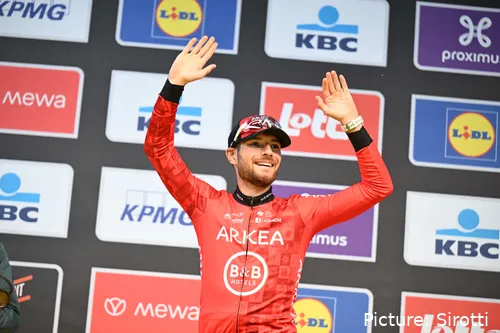
However his 2023, and 2024 seasons until this weekend were rather average, for a rider of his caliber as well. Although he's raced nothing but one-day races since late February, none indicated that he was having form to contest for a result. He had never even finished a cobbled monument actually, his only participation being Flanders 2023 where he abandoned. Hence it was a shock, after all these years, to see Malecki once again towards the top of the results sheet, and right in the biggest race of them all for a rider such as him. In Paris-Roubaix, with a breakaway or a lot of luck, you may finish up high. In Flanders just that won't get you far, you need to have the legs to match the best throughout hundreds of kilometers of climbs, crashes, cobbles and a lot more. The Pole did it all.
He finished 14th in the Flandrien classic, second out of the second chasing group. He finished directly ahead of riders such as Tiesj Benoot, Matteo Trentin, Mads Pedersen, Matteo Jorgenson and many more - all rider in fact, with the exception of 13 figures. It's Q36.5's reward for betting on a rider whose career in the last few years was marked by bad luck and injuries. A worthy return to the TV for Malecki, who was for me the absolute surprise of the race, even if TV cameras never really focused on him.
Read also
claps 3visitors 3
Just in
Popular news
Latest comments
- OK, let's stop with the BS. Remco Mustafa didn't have any cramps, 100%. The only truth is, Remco is not the great cyclist that the Belgians and his fans want us to think. Ad acta!!!... Once in the fall of 2025 I said that Remco's chances of following Pogi are equal to my chances, there is no difference. The only difference is that I'm in front of a TV and Mustafa is acting and making excuses live in front of an audience of millions. Ayuso and Remco are the biggest liars and fakes in the peleton.Mou-Cro-HR18-02-2026
- OK, let's stop with the BS. Remco Mustafa didn't have any cramps, 100%. The only truth is, Remco is not the great cyclist that the Belgians and his fans want us to think. Ad acta!!!... Once in the fall of 2025 I said that Remco's chances of following Pogi are equal to my chances, there is no difference. The only difference is that I'm in front of a TV and Mustafa is acting and making excuses live in front of an audience of millions. Ayuso and Remco are the biggest liars in the peleton.Mou-Cro-HR18-02-2026
- I just hope that he just says that he got cramps and that's it, rather than some long-winded excuse which makes him seem even more of a piece of...
 Rafionain-Glas18-02-2026
Rafionain-Glas18-02-2026 - finally, a team that does something smart. I could never understand why Ineos would like Egan train as he did alone. put a motorbike behind him with an earpiece to call out issues above. same with remco crashing into a postal truck.mij18-02-2026
- Wow, that is not a good sign for Remco. Great win for Tiberi!Pedalmasher18-02-2026
- Great champion Remco but his profile is more suitable for Ardennes-like races and tour with no very hard climbs. Not only Tadej and Vingegaard, there are a lot of younger cyclists (del Toro, Ayuso, maybe Seixas, Nordhagen and others) that will soon be big GC boys.
 maria2024202418-02-2026
maria2024202418-02-2026 - Evenopoel 1st real test, and he failedZamorano18-02-2026
- Remco is not the natural climber that riders like Tadej or Jonas are, no matter how much he trains and prepares for it. Yes, you can TT your way up moderately steep hills, but when the gradient gets super steep, he just can't keep up.
 santiagobenites18-02-2026
santiagobenites18-02-2026 - So against the better riders and a long mountain, Remco cracked. Sorry but way away from Pog and Jonasabstractengineer18-02-2026
- “I was portrayed as the devil" Bruyneel was really a talented team manager. His minor flaws: "coordinated, well-funded, and sophisticated doping regime" "hand-in-hand in implementing the team-wide doping programme" "was involved in trafficking and administering prohibited substances and methods, including EPO, blood transfusions, testosterone, human growth hormone, and cortisone. Teammates testified that nothing significant happened without Bruyneel's knowledge and approval." "fostered an environment where doping was considered a "fact of life" and necessary for success, effectively making it a condition of survival on the team. He also participated in or assisted with the cover-up of positive tests and doping violations." Those quotes show Bruyneel's true talent.Cyclingnut18-02-2026
Loading
Say hello to the brand new Tour of Flanders co-record holders! 👋 #RVV24
Write a comment

